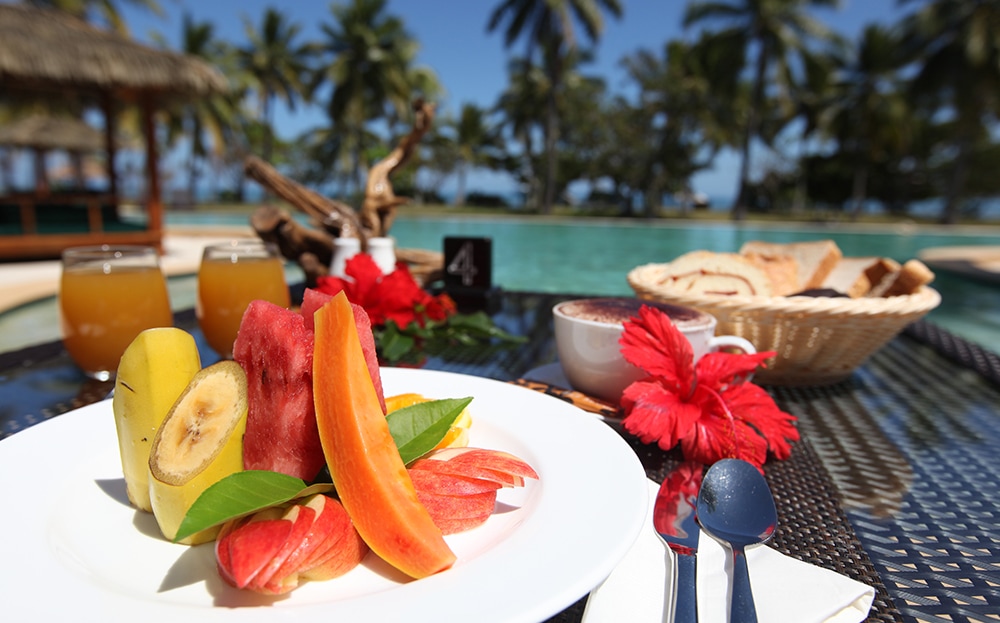Five-star Fijian Food

What
Fiji is a magnificent island, brimming with sun, surf, and culture. When you think of Fijian culture, you can probably name a couple of must-have experiences – beautiful island crafts; Fiji’s dramatic fire walking ceremonies; kava, a drink shared in traditional communal celebrations and derived from the roots of the kava crop and lovo, a Fijian feast of meat and root vegetables cooked in the coals of an outdoor oven. As with most cultures, Fijian daily life is wrapped up in food – growing it, cooking it, eating it, and sharing it. To embrace a nation’s culture is to dive in belly first, and Fiji is brimming with amazing foods just waiting for you to experience them.
Why
A nation’s food is the epitome of it’s culture, bringing together it’s long history, variety of cultural influences, and the best local and imported ingredients to make each plate a summary of where a nation has been, and where it’s going.
How
The traditional way of eating in Fiji is home cooked and made with locally-grown, barely-modified ingredients. If you’re heading off to a village visit, this is what you’ll see. Fresh local vegetables and seafood sourced from local markets manned by the farmers and fishers themselves, and if you can experience a local Food Safari you’ll be brought from market to farm to kitchen to gather, prepare, and cook your own traditional Fijian dish.
Another great way to experience a nation’s food culture is to eat its street food. Food that is fast, fresh, and easy to eat on the go is a mainstay of every nation on earth, and enables you to sample the most simplified version of a nation’s food identity,
Five-star and influential restaurants blur the line between traditional and modern ways of cooking and eating to give you truly exceptional food. Whether you’re glamming it up in a resort or sharing a backpackers’ dorm with 10 other travellers, splurging on a fancy dinner that encapsulates a nation’s history while demonstrating its present and embracing its future, and makes for a truly memorable travel experience.



